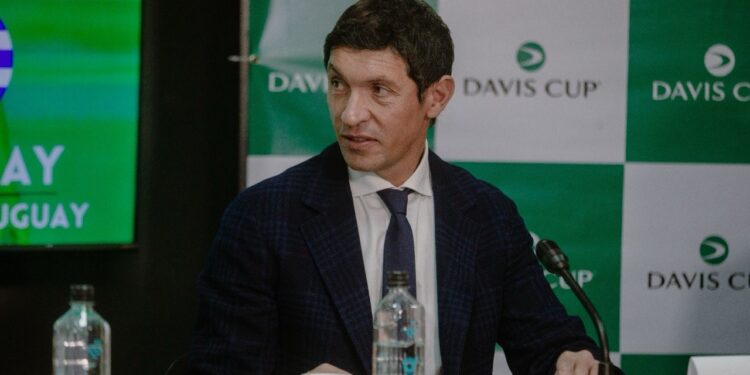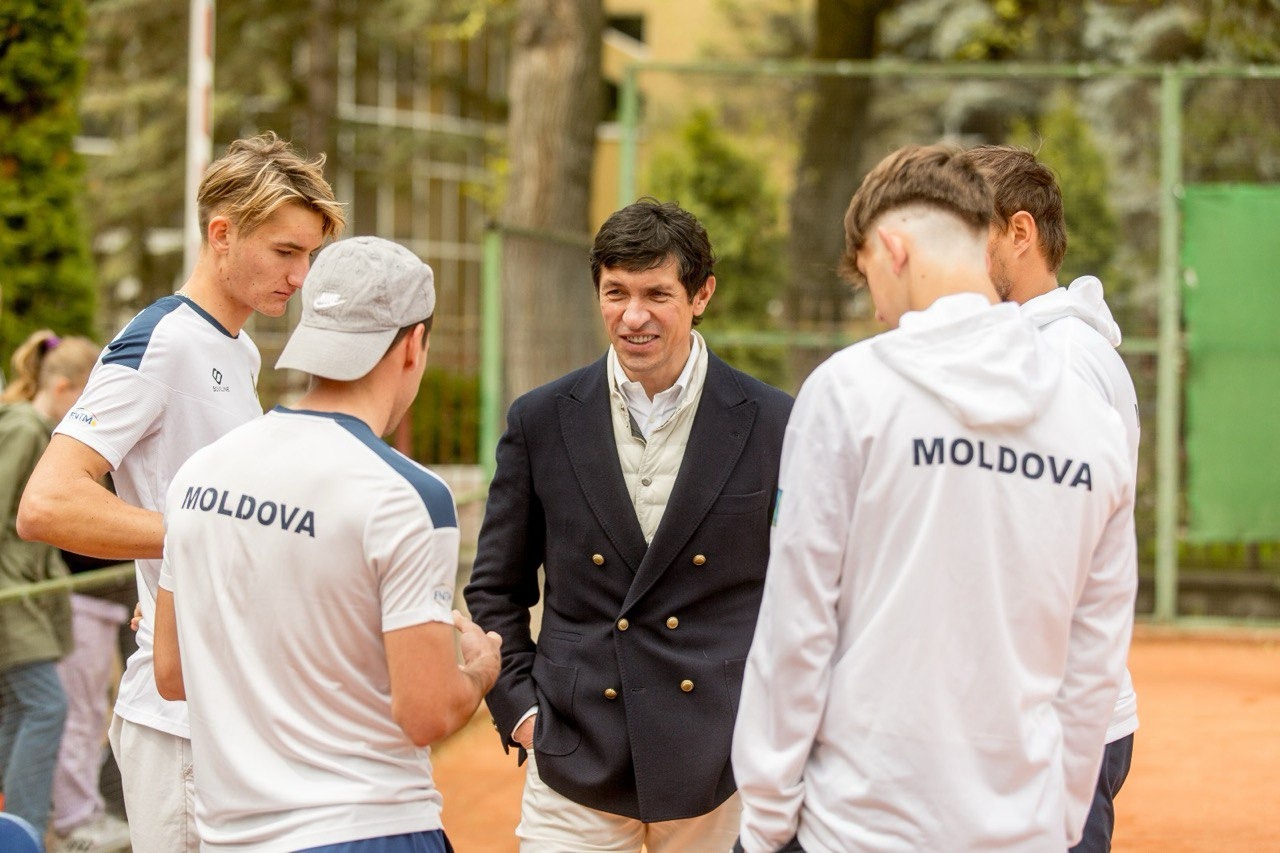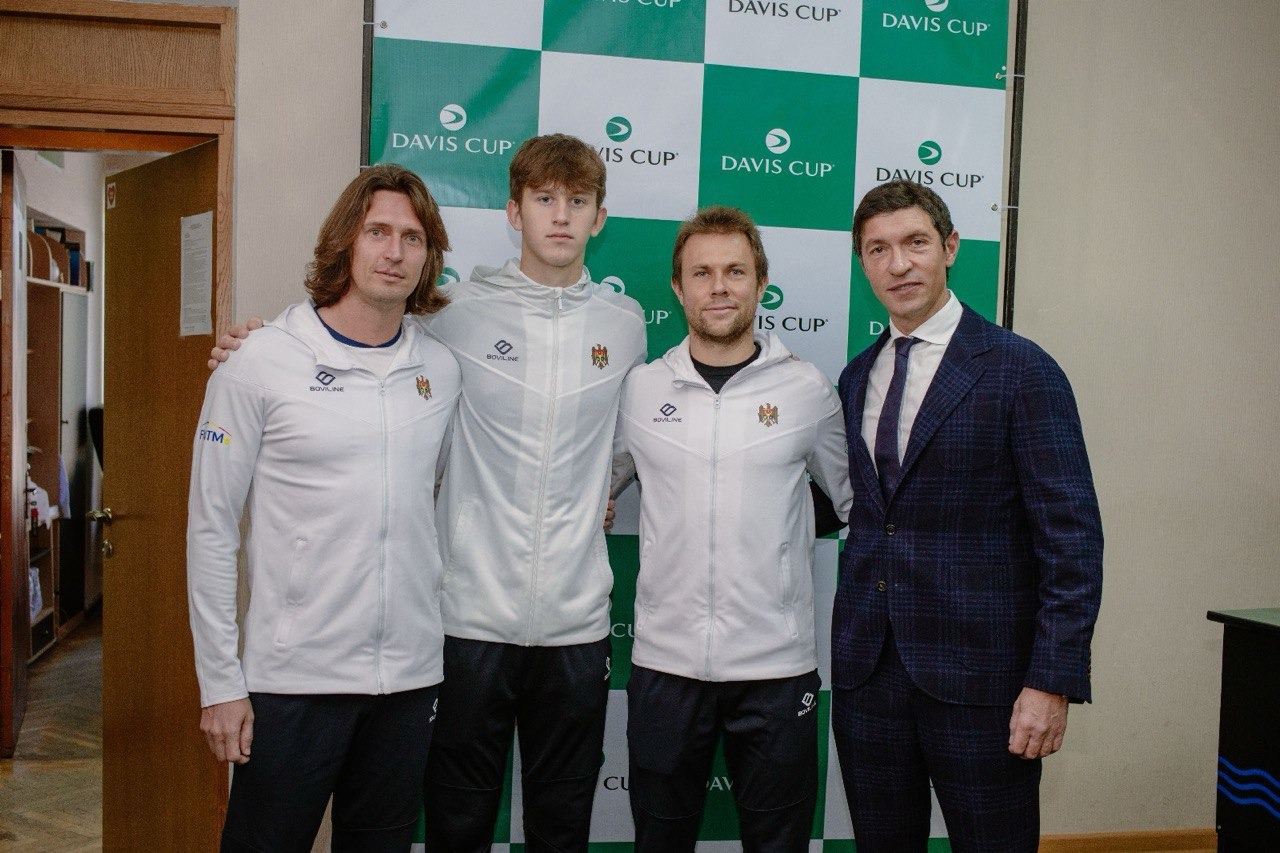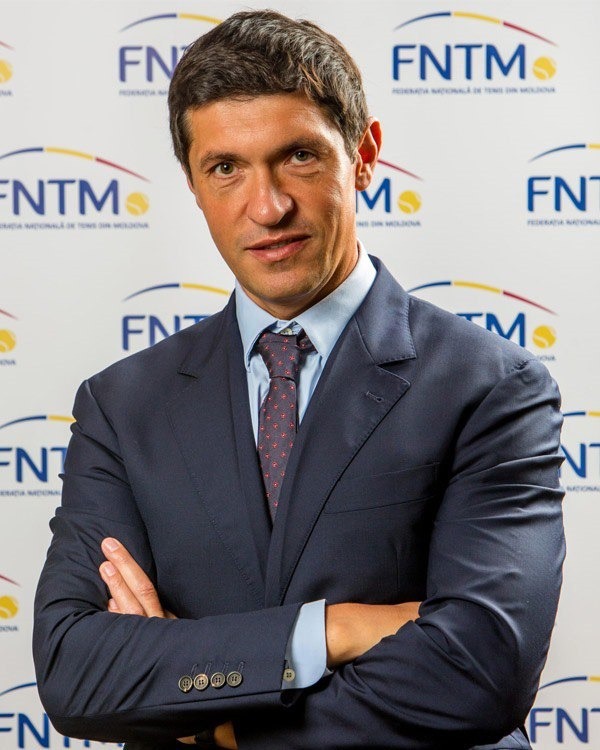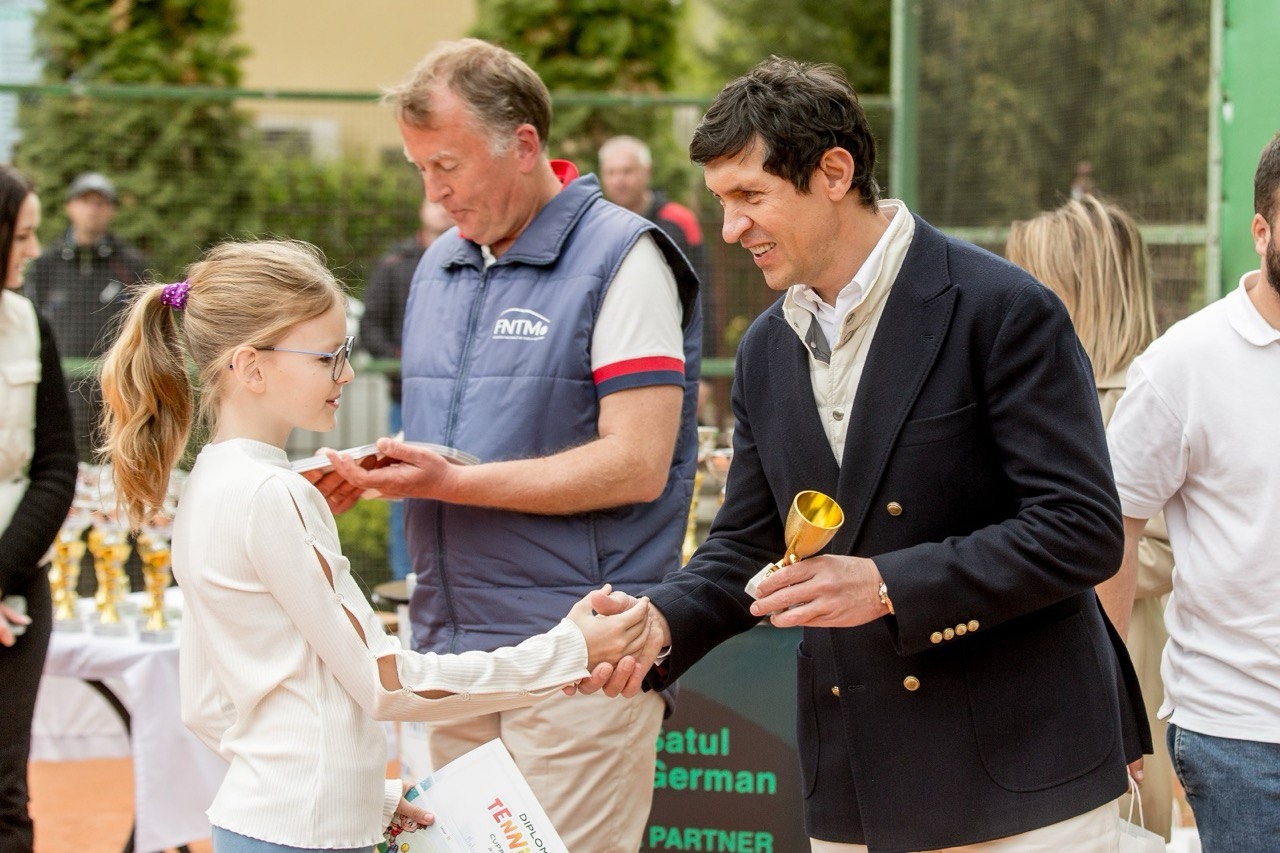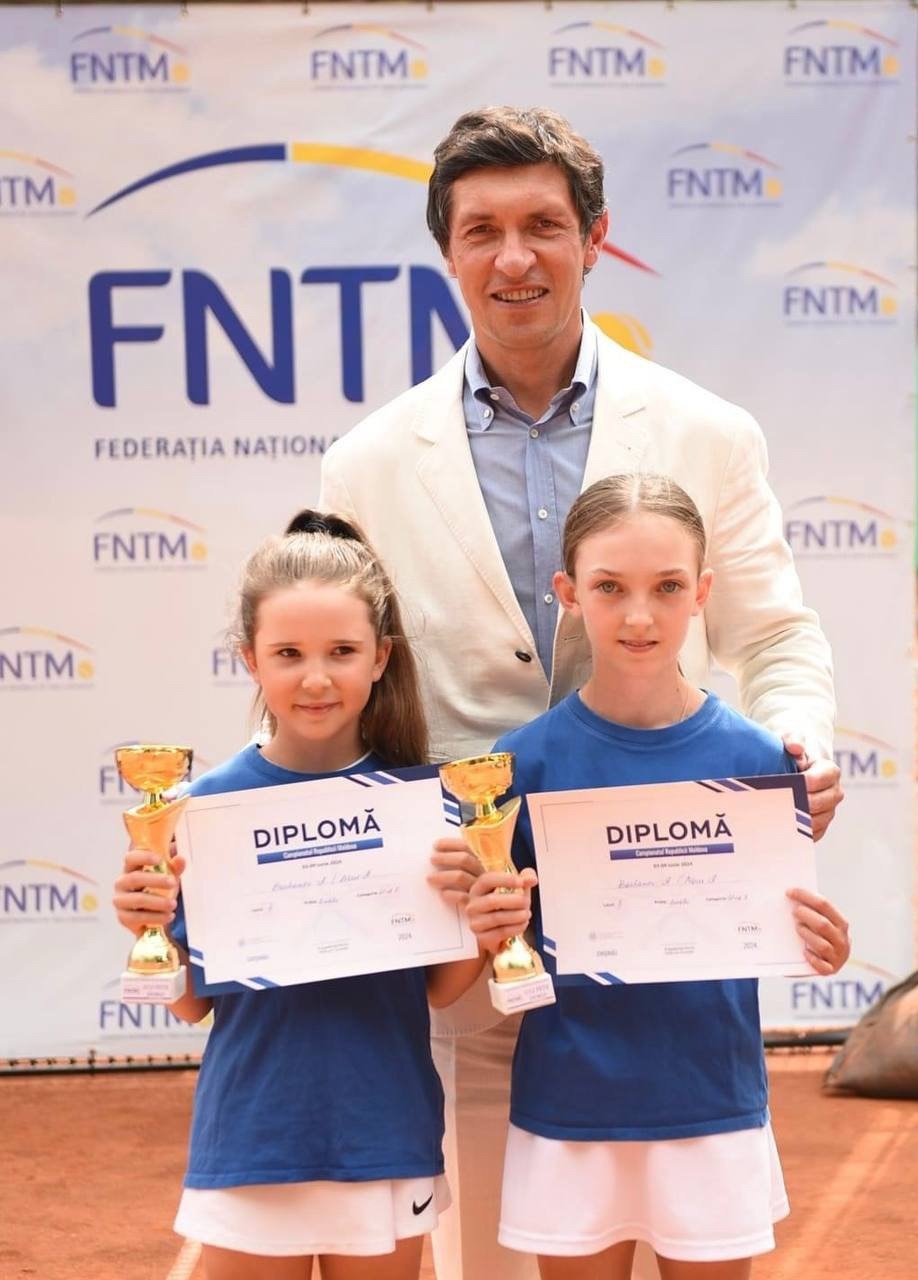Tennis boom in Moldova: how investments and promotion drive sports development
Tennis in the Republic of Moldova is at the peak of its popularity. This is evidenced by the numerous national competitions in this sport, the number of which has doubled in recent years. Moreover, more and more Moldovan tennis players represent their country honourably at international tournaments. What is the secret of such success? The President of the National Tennis Federation of Moldova Ceslav Ciuhrii answered this question. He also shared the strategy of tennis development in the country and plans for the future. He told how investments, interest of the population and international cooperation contribute to the popularisation and development of this sport in the Republic of Moldova.
There has been a noticeable and strong trend of tennis development in your country in recent years. For example, you increased the number of national competitions to 7 tournaments in 2021, and then in 2022 and 2023, you organized an average of 14 tournaments per year. We see the same trend in the international competition agenda. What are the main factors behind this growth? Is it due to increased interest or the population’s level of prosperity? Or is it about more investments in this sport?
Both. There are several factors that have helped us advance significantly since 2018, when I took over the leadership of the Tennis Federation of the Republic of Moldova and, together with the team, set the priorities and developed the strategy that we still follow today. First of all, investments. We realized that without investments, we would not have better infrastructure, quality competitions, the ability to develop professional tennis players, or the means to promote and popularize tennis in the Republic of Moldova. We gradually increased the budgets, and this allowed us to organize more national and international tournaments and to discover talented children who are slowly becoming professional tennis players.
Secondly, indeed, in my country, more and more citizens have become fond of this sport thanks to the results achieved by our tennis players in international tournaments, especially Radu Albot, ranked 144th in the ATP rankings, and the increasingly rich infrastructure, with free access and affordable subscriptions and entry fees. The positive effect of all this is that we have more supporters in the country, on the one hand, and more parents enrolling their children in tennis schools, on the other hand.
Another important factor is the increasingly high-quality and professional training of coaches, partly due to ITF programs. And last but not least, we are doing better thanks to our efforts to promote this sport among the citizens of my country.
Let’s take them one by one. How is tennis promoted in the Republic of Moldova? What strategies do you apply or intend to apply in the future?
The Tennis Federation of Moldova works a lot with children. We organize different projects, search for children with potential, and include them in our training programs, including those from rural areas and families who cannot afford such expenses. In general, we organize many competitions among children.
International competitions, which we increasingly host at a large, modern sports center in Chisinau, the capital of my country, or at the sports facility rented by the Tennis Federation in a suburb of the capital, help us a lot. These are good reasons to promote tennis among the citizens of the Republic of Moldova, especially when our tennis players achieve the results we aim for.
We also pursue the strategy of building outdoor tennis courts in the parks of the capital, with free access for those who want to play tennis. Two such courts were launched in 2021 in the largest park in the northern part of the city, and more and more people are going there to play tennis.
Local authorities in the capital are also developing sports infrastructure in city parks, including setting up table tennis courts, for example.
So, anyone can go to an outdoor tennis court in Chisinau to play tennis for free?
Yes, at the two tennis courts I mentioned above. In the future, we will build more such courts, also with free access.
Statistics show that you are doing better now in terms of infrastructure, but still well below the European average, for example. What is the current situation, what challenges are you facing, and what are your infrastructure development plans for the Republic of Moldova in the future?
In the capital city, there is a large sports complex called Arena Chisinau, which includes 8 outdoor tennis courts and all the necessary infrastructure for organizing international competitions. We are very happy to be hosted there and thus have the opportunity to organize important international competitions in the country.
But we aim higher, and that’s why we are currently building a national tennis center to European standards. It will not only be the largest in the Republic of Moldova but also in the surrounding region. It will have a capacity of 300 seats, 8 outdoor clay courts, and 6 indoor hard courts. It will be located in the most modern district of Chisinau, the German Village, and will be the perfect place for organizing large-scale international competitions.
Apart from the two free-access outdoor tennis courts in the park in the north of the capital, there are a few tennis clubs where access is, of course, paid, but the prices are relatively affordable, and I am glad that they are increasingly attended by the residents of Chisinau.
We also have a sports complex that, as mentioned, the Tennis Federation of Moldova rents in a suburb of the capital, a small town on the banks of the Nistru River.
Besides the national tennis center, I mentioned above, we want to build an outdoor tennis court in every big city in the Republic of Moldova.
Do you rely on instructors and experts from abroad to train tennis players in the Republic of Moldova, or do you count on local ones? I have read you have been participating in various external training programs for coaches recently. How is this aspect going?
We collaborate extensively with the ITF and the National Olympic Committee of the Republic of Moldova for coach training. This involves international courses taught by ITF experts right here in Moldova. Currently, for example, our coaches who train high-performing juniors are participating in an ITF Level II qualification enhancement course.
Additionally, throughout the year, coaches participate in various workshops and seminars with experts, both online and offline, for experience exchange. They attend international conferences, such as one in Bogotá, Colombia, in 2023, as well as other important events.
By the way, how much or how does the Tennis Federation you lead support players participating in international competitions?
We strive to do as much as possible for the players. We fully cover the participation costs of teams and individuals at European and World Championships. Our top-performing players attend training camps at the world’s most renowned academies, funded by the Tennis Federation, and we also organize many training camps in the country. We ensure that players always have access to professional training and good conditions.
How do you attract sponsors and partners for competitions, and how open are they in general?
It’s a bit more complicated here. For the most part, we manage with the resources of the National Tennis Federation of the Republic of Moldova, with the support of the ITF, and with financial support from companies that I own and that operate in the Republic of Moldova or countries in the region. As an entrepreneur in the pharmaceutical, real estate, and hospitality sectors, I decided to support the development of tennis in the Republic of Moldova. Some of the national tournaments are organized exclusively with the financial support of these companies. For example, the Biotehnos Series Cup U12 tournament is supported by Biotehnos, my pharmaceutical company. The Regata Junior Trophy tournament is supported by my construction company, Regata Imobiliare.
This doesn’t mean we don’t have other sponsors. They are, and we thank them for everything they do.
Name some of the most important achievements of the Tennis Federation of Moldova since you’ve been in charge.
Organizing international tournaments in Moldova is one of the main achievements, as my country had not previously hosted such competitions. This was detrimental not only to the development of tennis but also to the image of the Republic of Moldova.
I am pleased that we have managed to raise the level of training for junior players and, in general, increase the number of children playing tennis in the Republic of Moldova. We are satisfied with the performance of our men’s and women’s teams in the Davis Cup and Billie Jean King Cup. Even though we desire more courts, I consider what has been built in recent years and what is currently under construction to be a significant achievement for tennis in Moldova.
And, of course, I am happy that the Republic of Moldova is becoming increasingly prominent on the world tennis map and that we are part of many national and international tennis development projects.
What is your vision for the development of tennis in the Republic of Moldova in the short and long term? What are your predictions for the next 5 years?
I am convinced that in 5 years we will have more high-performing players in every age category, and our efforts to encourage as many children as possible to play tennis will yield impressive results.
I believe that thanks to the national tennis center we are currently building, which will be the largest in the region, the capital city, Chisinau, will become an important regional hub for hosting major international tournaments and implementing programs for young tennis players from the country and the region.
I am confident that my country needs more highly trained coaches and more referees, so we will be working hard in this area as well.
Finally, what message would you convey about tennis in the Republic of Moldova if you were in front of an international audience?
I would convince them, as I do every time I have the opportunity, that tennis in the Republic of Moldova is in full development, that our youth and children have enormous potential, that we are a country with many talents, hardworking and perseverant people with the fighting qualities necessary to develop high-performing players. And I would urge them to invest in tennis in my country.










